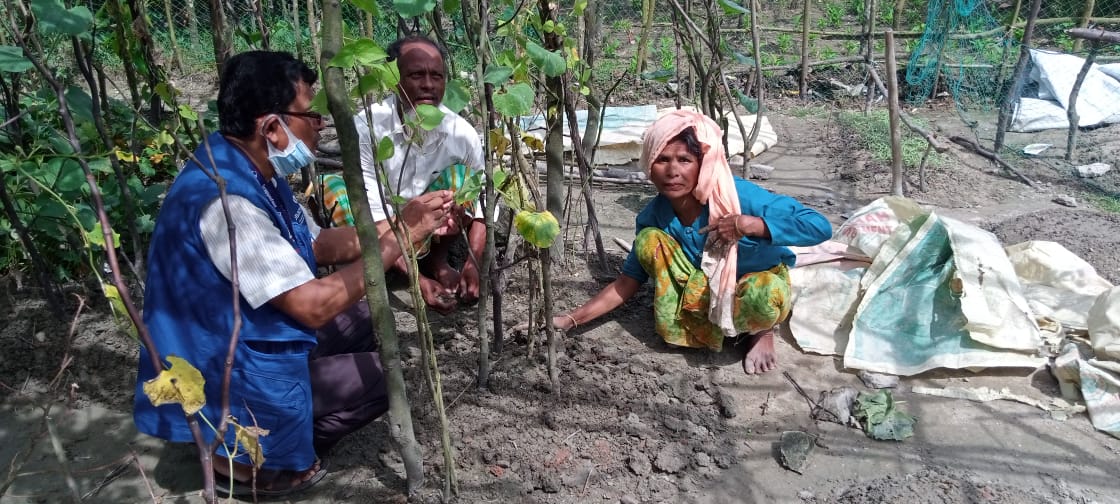The Government of Bangladesh has so far relocated approximately 18,000 Rohingya refugees from the overcrowded Kutupalong refugee camp in Cox’s Bazar and resettled them in Bhasan Char, an island in the Bay of Bengal. OBAT has been supporting the refugees settled there through the help of its implementing partner, Prantic.
After relocation, the refugees initiated an effort to organize themselves with the help of Prantic. They have formed a Coordination Committee, consisting of 12 men and 12 women. Seven of these 24 people form the governing body. Weekly meetings of the governing body are attended by Prantic, which is assisting them with defining their roles, vision, and mission and developing a MOA (Memorandum of Association) which all committee members will abide by.
Meanwhile, numerous efforts are underway to ensure that the refugees’ reliance on assistance is reduced and they become more self-sufficient. During the month of September alone, the following activities took place at Bhasan Char:
Rice Bank: Rohingya women have collectively established a “Rice Bank” with the objective of attaining self-reliance. This initiative will help them meet their daily expenses as employment opportunities are rare at this time in Bhasan Char. Through this unique concept, 250 members save 250 grams of rice that they receive from aid, every month. The rice is sold at an auction to build capital for starting entrepreneurship activities in conjunction with Prantic.
Other than reducing dependency on foreign aid, this initiative will also develop leadership among the refugees.
Homestead Vegetable Garden: About 60 refugees have also started the homestead vegetable gardening initiative under the leadership of the Governing Body. The produce from this initiative will not only address vitamin deficiencies among the Rohingya families but also help them earn money by selling vegetables in the markets nearby. Prantic is providing training and seeds to the Rohingya families with which they practice horizontal or vertical gardening. They will also be trained on producing compost and bio-pesticides.
Plant Nursery: Rohingya youth have set up a plant nursery where they are sowing fruit and vegetable seeds. They will provide the quality saplings to the Rohingya farmers for establishing homestead gardens. Prantic is providing seeds and supplies and plant nursery training to support them. It is expected that each entrepreneur will be able to supply at least 5,000 saplings to meet the needs of 500 Rohingya families. In order to create demand for quality saplings, Prantic is providing vegetable cultivation training to the Rohingya women so that they can initiate homestead gardening.

